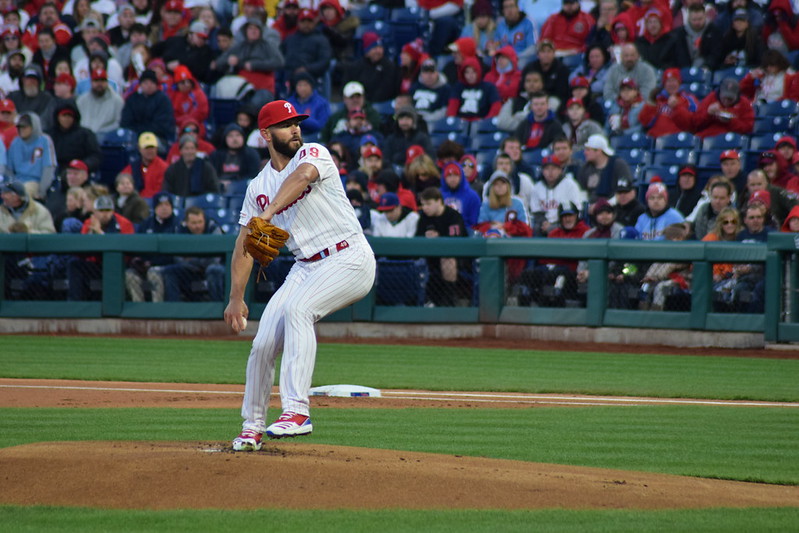

Perhaps Jake Arrieta’s performance following his $75 million contract is emblematic of the failures the Phillies have had during the past three seasons.
When the Phillies signed Arrieta, the 2015 National League Cy Young Award winner, it was a signal that they were prepared to emerge from the rebuild. Coupled with the addition of Carlos Santana, the Phillies were spending money for the first time since GM Matt Klentak was hired in 2015.
But the Phillies were unable to take a big enough step forward during Arrieta’s contract. They missed the playoffs despite hot starts and key additions in both 2018 and 2019, and their most recent failure was missing out of the expanded playoffs due to yet another September collapse.
And Arrieta, whose $25 million annual average value was the 11th richest of any starting pitcher in 2020, was in the middle of the Phillies mediocrity during the last three seasons.
His best season came in 2018, when he pitched to the tune of a 3.96 ERA in 31 starts. During that season, it became clear that Arrieta’s steady trend downward following his Cy Young season would continue. He struck out just 7.2 hitters per nine innings, and his inability to miss bats hurt him throughout.
In 2019, Arrieta got off to a solid start before hitting struggles and ultimately going on the injured list for much of the latter part of the season with bone spurs.
He showed signs of life in some of his starts in 2020, with his best start coming against the New York Mets when he threw seven innings and allowed just two runs in a 5-3 Phillies win. But Arrieta also had some starts that took the Phillies out of the game and spent the last two weeks of the season on the IL with a hamstring injury.
Ultimately, the Phillies went 33-35 in games started by Arrieta. His 99 ERA+ during those three seasons is just under league average, and, while he pitched well enough for a team’s fourth or fifth best starter, he was being paid to be an ace.
And the Phillies, despite running one of the highest payrolls in baseball, could not finish above .500 in any of the seasons in which Arrieta was here.
It’s hard to imagine how much interest there will be for Arrieta during this offseason. The starting pitching market is not deep by any means, but nothing about Arrieta’s performance the past three seasons suggests he is worthy of a significant investment.
Maybe a one-year deal laden with incentives could make sense for Arrieta, who could look to up his value the following season while the team who signs him can see if there is anything left in the tank. And while the Phillies will likely need to invest in starting pitching, it feels unlikely that the team goes after Arrieta following the failed pairing the first time around.